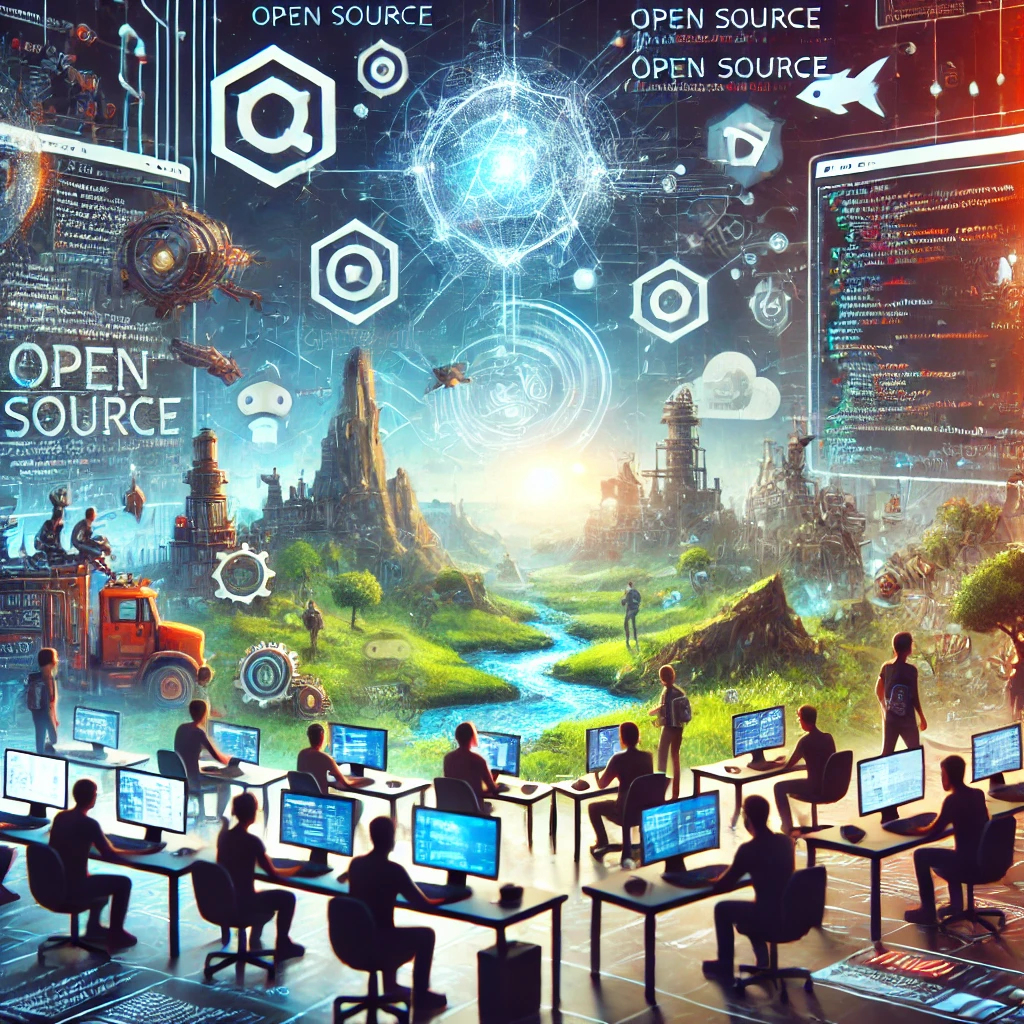Open-source software has become a cornerstone of technological development, enabling innovation, collaboration, and accessibility across various industries. In the gaming world, open-source software plays a crucial role in shaping the future of game development, offering tools and resources that are not only cost-effective but also community-driven. One prime example of this is MonkeyGG2, a gaming platform that leverages open-source components to empower developers and foster innovation. This article explores the importance of open source in gaming development, highlighting the benefits, challenges, and solutions associated with it.
Benefits of Open Source for Developers

Open source in gaming offers numerous benefits that make it an attractive choice for developers. One of the primary advantages is flexibility. Open-source software allows developers to modify and customize the code to suit their specific needs, enabling them to create unique gaming experiences. This flexibility is particularly valuable in the fast-paced world of gaming, where developers need to adapt quickly to new trends and technologies.
Another significant benefit is transparency. Open-source software is publicly accessible, allowing developers to see how the code works and to ensure that it meets their standards. This transparency fosters trust within the developer community, as it allows for greater accountability and easier debugging.
Community collaboration is perhaps the most powerful aspect of open-source gaming development. Developers around the world can contribute to a project, sharing their expertise and improving the software collectively. In the case of MonkeyGG2, developers can contribute to its open-source codebase, adding new features, fixing bugs, and enhancing overall performance. This collaborative approach not only speeds up development but also leads to a richer, more robust gaming platform.
Driving Innovation Through Open Source

Open-source platforms are key drivers of innovation in the gaming industry. By making their code available to the public, companies like MonkeyGG2 empower developers to experiment, iterate, and create new gaming experiences. This open environment encourages creativity and allows for rapid prototyping, which is essential in the highly competitive gaming market.
MonkeyGG2 has benefited greatly from community contributions, with developers around the world adding new functionalities and optimizing the platform. These contributions have led to innovations that might not have been possible in a closed-source environment. For instance, community-driven enhancements to MonkeyGG2’s graphics engine have significantly improved the visual quality of games on the platform, making them more immersive and appealing to players.
Challenges and Solutions

Despite its many advantages, open-source gaming development also comes with its share of challenges. One common issue is the fragmentation of projects, where multiple versions of the same software can lead to compatibility problems. This can make it difficult for developers to ensure that their games will run smoothly on different versions of the software.
MonkeyGG2 addresses this challenge through robust community support. By maintaining clear guidelines and an active developer community, MonkeyGG2 ensures that contributions are consistent and compatible with the platform’s overall architecture. Regular updates and thorough documentation also help to minimize fragmentation and keep the development process on track.
Another challenge is the potential for security vulnerabilities in open-source software. Since the code is publicly accessible, it can be easier for malicious actors to identify and exploit weaknesses. However, the open-source nature of the software also allows for a broader range of developers to identify and fix these vulnerabilities, often faster than in closed-source environments. MonkeyGG2 relies on its active community to monitor and address security issues promptly, ensuring a secure and stable platform for all users.
Conclusion
The role of open source in gaming development is undeniably significant, providing developers with the tools, flexibility, and collaborative environment needed to drive innovation. MonkeyGG2 exemplifies how open-source platforms can harness community contributions to create a dynamic and evolving gaming experience. While challenges exist, the solutions provided by active community engagement and transparent development practices make open-source gaming development a powerful force in the industry. As the gaming world continues to evolve, open source will undoubtedly remain at the forefront of this transformation, pushing the boundaries of what is possible in game development.
